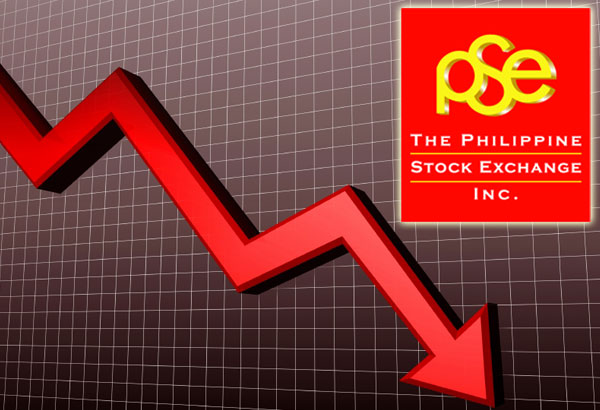Understanding the stock market
By Randell Tiongson on June 21st, 2024
The stock market is a crucial component of a country’s economy, serving as a barometer for its financial health and a platform for businesses to raise capital. In the Philippines, the stock market operates through the Philippine Stock Exchange (PSE), which is one of the oldest stock exchanges in Asia. Understanding how the stock market works in the Philippines can provide valuable insights into investment opportunities, economic trends, and the overall financial landscape of the country.

Understanding the Stock Market
At its core, the stock market is a marketplace where securities such as stocks and bonds are bought and sold. Stocks represent ownership shares in a company, while bonds are debt instruments that companies or governments issue to raise money. Investors buy stocks with the hope that their value will increase over time, allowing them to sell at a profit. Conversely, bonds are purchased for their interest income and relative safety compared to stocks.
The PSE, located in Metro Manila, is the central hub for stock trading in the Philippines. It facilitates the buying and selling of stocks through a network of brokers and electronic trading platforms. The PSE is regulated by the Securities and Exchange Commission (SEC), ensuring that trading practices are fair and transparent, protecting both investors and the integrity of the market.
How the Philippine Stock Market Works
1. Listing of Companies
For a company to trade its shares on the PSE, it must first go through an Initial Public Offering (IPO). During an IPO, the company offers a portion of its shares to the public for the first time. This process involves rigorous regulatory scrutiny to ensure the company’s financial health and compliance with market regulations. Once listed, the company’s shares can be freely traded among investors.
2. Trading Process
Trading on the PSE occurs through an electronic system known as the PSEtrade XTS. This system matches buy and sell orders from investors. Trading sessions typically run from Monday to Friday, with a pre-opening period starting at 9:00 AM and the regular trading session from 9:30 AM to 3:30 PM. The market is closed on weekends and public holidays.
3. Role of Brokers
Investors cannot directly trade stocks on the PSE; they must go through licensed brokers. These brokers act as intermediaries, executing buy or sell orders on behalf of their clients. Investors can place orders through various channels, including online trading platforms, phone, or in person. Brokers charge a commission for their services, which is usually a percentage of the transaction value.
4. Market Indices
The performance of the Philippine stock market is often gauged using indices, with the PSE Composite Index (PSEi) being the most prominent. The PSEi tracks the performance of the top 30 publicly traded companies in the country, providing a snapshot of the market’s overall health. Other indices, such as the All Shares Index and sectoral indices, track broader segments of the market.
Benefits of Investing in the Stock Market
1. Wealth Accumulation
One of the primary motivations for investing in the stock market is the potential for wealth accumulation. Historically, stocks have provided higher returns compared to other asset classes such as bonds or savings accounts. By investing in a diversified portfolio of stocks, investors can benefit from capital appreciation and dividend income.
2. Ownership in Companies
When investors buy shares, they become part-owners of the company. This ownership entitles them to a portion of the company’s profits, typically distributed as dividends. Additionally, shareholders have voting rights in major company decisions, such as electing the board of directors.
3. Liquidity
The stock market offers liquidity, meaning investors can easily buy or sell their shares. This liquidity is essential for managing investment portfolios and responding to market conditions. Unlike real estate or other illiquid investments, stocks can be quickly converted to cash.
Risks and Considerations
1. Market Volatility
Stock prices can be highly volatile, influenced by a myriad of factors including economic data, corporate earnings, geopolitical events, and market sentiment. This volatility can result in significant short-term losses, making it essential for investors to have a long-term perspective and risk tolerance.
2. Company Performance
The value of stocks is directly tied to the performance of the underlying companies. Poor management decisions, competitive pressures, and economic downturns can negatively impact a company’s stock price. Therefore, thorough research and analysis are crucial before making investment decisions.
3. Regulatory and Economic Factors
Changes in government policies, tax laws, and economic conditions can affect the stock market. For example, changes in interest rates or inflation can influence investor behavior and stock prices. Keeping abreast of economic indicators and regulatory changes is vital for informed investing.
Investing in the Philippine Stock Market
1. Getting Started
To start investing in the Philippine stock market, individuals need to open an account with a PSE-accredited broker. Many brokers offer online platforms that provide access to market data, research reports, and trading tools. Investors should assess their financial goals, risk tolerance, and investment horizon before making decisions.
2. Diversification
Diversification is a key strategy to mitigate risk in stock market investing. By spreading investments across various sectors and companies, investors can reduce the impact of poor performance in any single stock. Exchange-traded funds (ETFs) and mutual funds are popular vehicles for achieving diversification.
3. Continuous Learning
The stock market is dynamic, with constant changes and new developments. Continuous learning and staying informed about market trends, company news, and economic indicators are essential for successful investing. Many brokers and financial institutions offer educational resources and seminars to help investors build their knowledge.

The stock market in the Philippines, anchored by the Philippine Stock Exchange, plays a vital role in the country’s economic development. It provides a platform for companies to raise capital and for investors to build wealth. While investing in the stock market carries risks, a well-informed and strategic approach can lead to significant financial rewards. By understanding how the stock market works and staying informed about market trends, investors can navigate the complexities of the financial landscape and achieve their investment goals.




